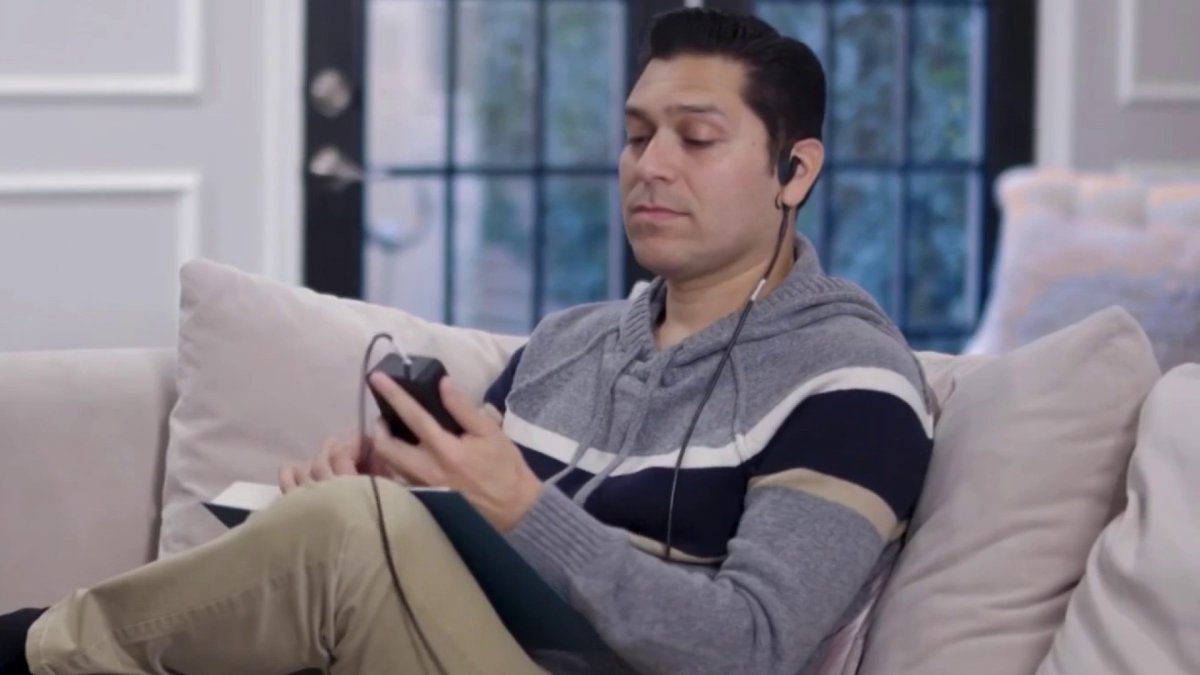
A small, wearable device is helping patients survive the awful symptoms of opioid withdrawal.
Spark Biomedical created the FDA-approved Sparrow Therapy System. It’s essentially an earpiece that sends mild electrical pulses to the brain to help alleviate the withdrawal symptoms that patients go through while they’re detoxing, like insomnia, tremors, chills and sweating, bone pain, mood swings, and more.
“One of the reasons there's an opioid epidemic is that the withdrawal symptoms, the painful, excruciating detox process to get off opioids, is so bad that most people can't endure it,” Spark Biomedical President and CEO Daniel Powell.
“We're able to deliver mild amounts of electrical stimulation at points near and around the ear, where surface area nerves, cranial nerves come up and they tell the brain to calm down and they actually drive the brain to produce its own endogenous endorphins, which fill the vacant opioid channels when somebody is going through opioid withdrawal,” Powell said.
We're making it easier for you to find stories that matter with our new newsletter — The 4Front. Sign up here and get news that is important for you to your inbox.
The patient controls the intensity and duration.
Powell said the technology has been used before. It’s backed by science and extensive clinical trials with opioid addiction patients. One in three participants reported they were symptom-free within one hour of stimulation and able to maintain that throughout the detox process. Others saw improvements over the course of several days. No one in the studies experienced side effects.
One of the reasons there's an opioid epidemic is that the withdrawal symptoms, the painful, excruciating detox process to get off opioids, is so bad that most people can't endure it.
Spark Biomedical CEO Daniel Powell
Health
“It's meant to be used for four to eight days, just the duration of your typical acute withdrawal, the time it takes to detox,” Powell said.
One patient shared her story on the company’s website and said she was surprised by how quickly the technology worked.
“I’ve been through detox before,” Eliza Serra said. “I’ve been on the taper and I experienced this, and it’s completely different because you don’t have to worry about waking up in the morning and waiting for your taper and getting sick.”
“We're trying to keep the overall therapy less than $150 a day,” Powell said.
“Clearly, this problem keeps getting worse, and we need novel solutions, we need them reimbursed and we need to get them in the hands of as many people as possible,” he said.
Powell says the Sparrow Therapy System is already being used at two dozen rehab facilities across the country. None of them is in the D.C. area yet, but next month, Spark Biomedical will offer a telehealth program where people can have the product sent to their home, and they’re working toward health insurance coverage for the new product.
The company also started clinical trials, testing the device on newborns who are exposed to opioids in utero to see if it can help them during the first couple weeks of life and going through withdrawal.